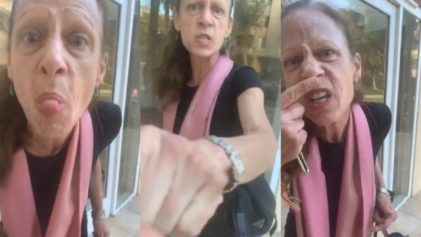
The survey showed that more than half of high-earning Black Americans have faced racism, racial slurs. (Photo by John Lund/Tiffany Schoepp/Getty Images)
Over 60 percent of Black Americans earning $75,000 a year or more say they’ve been the target of a racial slur compared to 40 percent of their low-income counterparts, according to a recent NPR poll.
The survey, conducted in conjunction with the Robert Wood Johnson Foundation and the Harvard T.H. Chan School of Public Health, debunked the popular notion that money can shield prosperous Blacks from experiencing racism and bigotry. More than half of the 800 participants surveyed said they’ve personally experienced racial slurs or has had someone make negative assumptions about them because of their race.
Moreover, the survey showed that wealthy Black Americans surpassed their counterparts earning $25,000 or less on the issue of having negative assumptions made about them, reporting 73 percent and 45 percent respectively.
“The numbers are just staggering in the share of people who report sometime in their life they were discriminated against because of their race, or they were treated very unfairly, and that is significant,” said Robert Blendon, a health policy professor at Harvard’s School of Public Health who worked on the study.
“We’re not just going to solve this problem by having more-black college graduates,” Blendon added.
Gulf War veteran and lawyer Phillip Thompson said he experienced the racist assumptions from his own neighbors after moving into an affluent suburb just outside Washington, D.C. He said his neighbors, who are mostly white, assumed he had to have been some sort of athlete or football star in order to afford his home.
“I just play into it,” Thompson told NPR. “Like no, I’m a rapper or I’m a pimp. I’m a retired pimp … I’m going to play on your stereotypes because then it makes you look even more [stupid.]”
Even in their gated community, Thompson’s wife, Tanja, said racism and discrimination play out in not-so-obvious ways. However, the former Air Force senior master sergeant has her ideas as to why wealthy Blacks experience more bigotry.
“When you make $75,000 or more, $100,000, you’re dealing with more educated individuals — and probably more so people who don’t look like you.”


